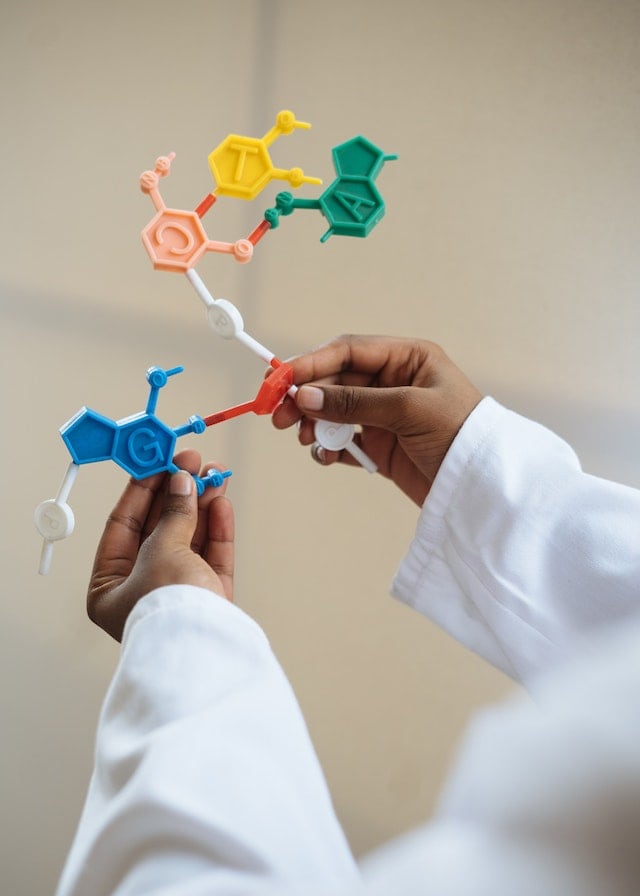Meth Addiction Treatment

Methamphetamine (Meth) addiction is a severe problem in the United States and requires professional drug addiction treatment. The most effective treatment for meth addiction typically involves a combination of behavioral therapy, medication-assisted treatment, and support from family and a community of peers in recovery.
Behavioral therapies, such as cognitive-behavioral therapy (CBT) and contingency management (CM), can help individuals with meth addiction identify and change negative thoughts and behaviors associated with drug use.
Medication-assisted treatment (MAT) may be used to manage withdrawal symptoms and cravings. MAT may involve using medications such as buprenorphine and naltrexone to help reduce withdrawal symptoms and prevent relapse.
Inpatient or outpatient treatment programs, 12-step programs, and support groups such as Narcotics Anonymous can provide additional support and structure for individuals in recovery. It’s important to note that recovery from meth addiction is a long-term process and often requires multiple rounds of treatment.
Does Meth require detox?
Yes, meth withdrawal often requires a medically-supervised detoxification (detox) process. Meth use can lead to physical dependence, and abruptly stopping use can cause withdrawal symptoms such as depression, fatigue, and intense cravings. These symptoms can be severe and even life-threatening in some cases.
During detox, individuals receive medical and psychiatric support to manage withdrawal symptoms, address any underlying medical or mental health conditions, and begin the process of recovery. The length and severity of detox will vary depending on the individual and their history of meth use.
Seek professional help for meth detox, as attempting to quit “cold turkey” can be dangerous and potentially life-threatening. A medically-supervised detox can ensure the safety and comfort of the individual during the withdrawal process.
Detoxing from Meth Addiction
Detoxing from Meth can cause a range of unpleasant physical and psychological symptoms. The severity and duration of symptoms can vary based on the individual and their level of meth use.
Physical symptoms of meth withdrawal may include:
- Fatigue
- Intense cravings for Meth
- Insomnia or excessive sleeping
- Headache
- Muscle aches and pains
- Increased appetite
- Heart palpitations
Psychological symptoms of meth withdrawal may include:
- Depression
- Anxiety
- Irritability
- Paranoia
- Hallucinations
- Aggression
- Suicidal thoughts or actions
The length of meth detox can vary depending on the individual and their level of meth use. Medical Meth detox typically lasts a day or two. However, some individuals may experience withdrawal symptoms, such as depression and cravings, for much longer after detox.
Detox is only the first step in recovery from meth addiction.
After detox, individuals often require ongoing behavioral therapy, medication-assisted treatment, and support from family and a community of peers in recovery to achieve lasting recovery and prevent relapse.
Inpatient Rehab for Meth Addiction
Inpatient rehabilitation (rehab) for meth addiction is a residential treatment program where individuals receive 24-hour care and support in a structured, therapeutic environment. Inpatient rehab is designed to provide comprehensive care for individuals struggling with meth addiction. It can help them build the skills and resources needed for a successful recovery.
Inpatient rehab programs typically last between 30-90 days and offer a range of evidence-based treatment modalities, including:
- Behavioral therapy: This may include individual or group therapy, such as cognitive-behavioral therapy (CBT) and contingency management (CM), which help individuals identify and change negative thought patterns and behaviors associated with meth use.
- Medication-assisted treatment (MAT): This may involve using medications such as buprenorphine and naltrexone to help manage withdrawal symptoms, reduce cravings, and prevent relapse.
- Support groups and 12-step programs: Inpatient rehab often includes opportunities for individuals to participate in support groups and 12-step facilitation approach, such as Narcotics Anonymous, to connect with others in recovery and receive additional support and guidance.
- Holistic therapies: Some inpatient rehab programs offer holistic therapies, such as yoga, acupuncture, and massage therapy, to help individuals manage stress and promote physical and emotional well-being.
Inpatient rehab provides a safe and supportive environment for individuals to begin their recovery. It can benefit those with severe addiction or co-occurring medical or mental health conditions. However, it’s important to note that recovery from meth addiction is a long-term process, and ongoing support and care are necessary for lasting recovery and preventing relapse.

Meth Addiction and The Matrix Model
The Matrix Model is an evidence-based treatment program for individuals with meth addiction that incorporates behavioral therapy, psycho-education, and 12-step support elements. The program was initially developed in the 1980s and has since been widely adopted as an effective treatment for methamphetamine addiction.
The Matrix Model consists of several fundamental components:
- Structured individual therapy may involve individual counseling sessions with a trained therapist, where individuals work through the psychological and emotional issues associated with their meth use.
- Group therapy sessions provide opportunities for individuals to connect with others in recovery, share their experiences, and receive support and feedback.
- The Matrix Model often includes family education and therapy, which can help families understand the impact of meth addiction on the individual and support the individual’s recovery.
- Regular urine drug testing is a core component of the Matrix Model, as it helps to monitor the individual’s drug use and provide accountability.
- The Matrix Model often includes participation in 12-step programs, such as Narcotics Anonymous, to provide ongoing support and accountability for individuals in recovery.
The Matrix Model is typically delivered in an outpatient setting and lasts between 16-24 weeks.
The Matrix Model is effective in reducing meth use and improving outcomes for individuals with meth addiction.
However, it’s important to note that recovery from meth addiction is a long-term process and ongoing support and care are necessary for lasting recovery and to prevent relapse.
EMDR and Neurofeedback Treatments for Meth Addiction
Eye Movement Desensitization and Reprocessing (EMDR) therapy and Neurofeedback therapy are alternative treatments that may support recovery from meth addiction by addressing the underlying psychological and neurological issues that contribute to the development and maintenance of an addiction.
EMDR therapy is a type of psychotherapy that aims to help individuals process and resolve traumatic or distressing memories that may contribute to addictive behaviors. During EMDR therapy, individuals are guided to recall traumatic experiences while focusing on bilateral stimulation, such as eye movements or tapping, to help process the experience and reduce its emotional impact.
Neurofeedback therapy, also known as EEG biofeedback, uses real-time displays of brainwave activity to help individuals learn to self-regulate their brainwaves and improve brain function.
Neurofeedback therapy may help individuals with meth addiction improve symptoms such as anxiety, depression, and impulsiveness, which can contribute to developing and maintaining addiction.
While EMDR and Neurofeedback therapies are not specifically designed for meth addiction, they may be helpful complementary treatments that can support recovery by addressing the dual diagnosis of any underlying psychological and neurological issues. However, it’s important to note that these therapies are not a substitute for evidence-based addiction treatments, such as behavioral therapy and medication-assisted treatment. They should be used in conjunction with these treatments for the best results.
Addiction Treatment for Meth
Methamphetamine, commonly known as meth, is a highly addictive and dangerous drug affecting millions worldwide. Meth addiction can devastate physical and mental health, relationships, and overall quality of life. Understanding the nature of meth addiction and the need for effective meth addiction treatment is crucial for individuals and their loved ones seeking recovery. Meth addiction rehab plays a vital role in helping individuals break free from the cycle of addiction and regain control over their lives. By addressing the underlying causes and providing comprehensive treatment, rehab centers offer a holistic approach to recovery.
To comprehend the importance of meth addiction rehab, it is crucial to understand the nature of meth addiction itself. Meth is a powerful stimulant that affects the central nervous system, leading to increased energy, euphoria, and intense cravings. Over time, the brain becomes dependent on meth, and addiction develops. Signs and symptoms of meth addiction can include erratic behavior, increased aggression, paranoia, insomnia, and severe physical deterioration. The impact of meth addiction on physical and mental health is severe, with long-term use leading to dental problems, skin sores, weight loss, and cognitive impairment.
Meth Addiction Rehab
The process of meth addiction rehab typically involves several components. Detoxification is the first step to removing meth from the body while managing withdrawal symptoms. Therapy and counseling play a crucial role in addressing the psychological aspects of addiction and developing healthy coping mechanisms. Support groups and aftercare programs provide ongoing support and help individuals maintain their sobriety in the long term.
Choosing the right meth addiction rehab center is a vital decision that should be based on various factors. Considerations include the type of rehab programs offered, the qualifications and experience of the staff, the facility’s location, and available amenities and resources. Supporting a loved one in meth addiction rehab requires understanding and empathy. Educating oneself about addiction, showing unconditional love and support, and creating a supportive environment that promotes recovery are essential. Being active in their treatment can involve attending therapy sessions, offering encouragement, and assisting in finding healthy activities and routines.
By seeking comprehensive meth addiction rehab, individuals can embark on a journey of recovery, healing, and rebuilding their lives. With the right support and treatment, there is hope for a brighter future beyond meth addiction.
Key takeaway:
- Understanding Meth Addiction: Meth addiction is a serious issue that affects individuals physically and mentally, requiring specialized rehab programs for effective treatment.
- The Impact of Meth Addiction on Health: Meth addiction can harm physical and mental health, necessitating comprehensive rehab programs to address these issues.
- Supporting Loved Ones in Rehabilitation: Supporting a loved one in their journey to recovery from meth addiction involves creating a supportive environment and actively participating in their treatment and rehabilitation process.
Understanding Meth Addiction
Understanding meth addiction is crucial in addressing this serious problem that affects many individuals. Meth addiction has profound consequences on both physical and mental health. Several factors contribute to meth addiction, including genetic predisposition, environmental factors, and individual choices.
One of the challenges of meth addiction is the rapid increase in tolerance, which leads to the need for higher and more frequent doses to achieve the desired effects. The compulsive and uncontrollable craving for the drug that results from meth addiction leads to significant changes in behavior, cognitive function, and physical appearance.
Long-term meth use creates a severe physical and psychological dependence, making quitting challenging without professional help. That’s why detoxification and rehabilitation programs play a vital role in helping individuals overcome meth addiction. These programs offer medical and psychological support to manage withdrawal symptoms and address the underlying factors contributing to addiction.
Recovery from meth addiction is a lengthy and difficult process that requires ongoing commitment, support from loved ones, and the development of healthy coping mechanisms. It is essential to understand the devastating impact of meth addiction on individuals, families, and communities to take proactive steps to prevent its spread.
By understanding the complexities of meth addiction, we can work towards effective prevention strategies, provide adequate support to those struggling with addiction, and promote overall well-being and recovery.
What is Meth?
Methamphetamine, also known as meth, is an addictive stimulant drug that affects the central nervous system. What is Meth? It is a synthetic substance similar to amphetamine and produces similar effects. Meth comes in white powder or crystal form called crystal meth. It can be taken orally, smoked, snorted, or injected. Regardless of how it’s taken, meth quickly enters the brain, producing a rush of euphoria, increased energy, and heightened focus.
The effects of meth can last for several hours and include an increased heart rate, elevated blood pressure, and reduced appetite. Prolonged use can lead to serious health consequences such as addiction, tooth decay, skin sores, paranoia, hallucinations, and organ damage.
Once addicted, individuals experience intense cravings and a compulsive need to use meth. Meth addiction can devastate physical and mental health, relationships, and overall well-being.
Unfortunately, the consequences of meth addiction extend beyond the individual user to family, friends, and communities.
How Does Meth Addiction Develop?
How Does Meth Addiction Develop?
Meth addiction develops through factors that affect the body and mind. Understanding how meth addiction develops helps us comprehend the struggles faced by individuals dealing with this addiction.
1. Exposure: Meth addiction development starts with exposure to the drug. Methamphetamine, or meth, is a highly addictive stimulant that affects the central nervous system. Individuals may be exposed to meth through experimentation, peer pressure, or seeking pleasure and escape.
2. Neurochemical Effects: Methamphetamine stimulates dopamine release in the brain, creating euphoria and increased energy. This dopamine flood reinforces drug-seeking behavior and rewires the brain’s reward system. Over time, users develop tolerance, needing higher doses for the same effects, leading to dependence and addiction.
3. Psychological Factors: Meth addiction is often associated with pre-existing mental health conditions or trauma. Individuals may turn to meth as self-medication or to cope with emotional pain. The drug’s initial euphoria provides temporary relief, reinforcing the addiction cycle.
4. Social Environment: Peer influence and social factors play a significant role in meth addiction development. Environments where meth use is prevalent increase the likelihood of trying and becoming addicted to the drug.
5. Genetic Predisposition: Some individuals may have a genetic predisposition to addiction. Certain genetic variations make individuals more susceptible to meth’s effects and increase the risk of addiction.
The Need for Meth Addiction Rehab
Regarding meth addiction, rehab is an essential step toward recovery. In this section, we’ll dive into the pressing need for meth addiction rehab and explore the signs and symptoms of meth addiction that necessitate professional intervention. We’ll also shed light on the profound impact of meth addiction on physical and mental health, revealing the urgency and importance of seeking specialized assistance. Let’s uncover the crucial reasons why meth addiction rehab is vital.
Signs and Symptoms of Meth Addiction
Recognizing the signs and symptoms of meth addiction is crucial for identifying substance abuse disorder. This article will highlight the indications that suggest meth addiction.
One of the first signs to look out for is extreme weight loss. Methamphetamine suppresses appetite, leading to significant and rapid weight loss. Additionally, changes in physical appearance are common among meth users. These changes may include skin sores, dental issues, and poor hygiene. Another noticeable symptom is hyperactivity. Meth stimulates the central nervous system, causing excessive activity, talkativeness, and restlessness. Users also experience increased energy, exhibiting sudden bursts of energy, unusual stamina, and heightened alertness.
Mood swings, another side effect of methamphetamine use, can be extreme. This includes irritability, aggression, and paranoia. Insomnia is also a common symptom, as meth disrupts sleep patterns, leading to insomnia and reduced sleep quality. Dilated pupils are a physical sign of methamphetamine use, resulting in larger-than-usual pupils. Psychological symptoms can also manifest in individuals struggling with meth addiction. These symptoms may include anxiety, depression, hallucinations, and paranoia. Furthermore, an increase in risky behavior is often observed in meth users. This behavior can include impulsive and dangerous actions such as violence, theft, and unprotected sex. Additionally, meth addiction can lead to financial difficulties, legal troubles, and strained relationships.
By being aware of these signs and symptoms, you can help identify meth addiction in individuals and provide them with the support and resources they need to overcome this debilitating disorder.
The Impact of Meth Addiction on Physical and Mental Health
The impact of meth addiction on physical and mental health is significant. Methamphetamine use takes a toll on the body, resulting in weight loss, dental problems, and skin issues. It also leads to cardiovascular issues such as increased heart rate, high blood pressure, and heart attacks. Furthermore, meth addiction has devastating effects on mental health, including anxiety, depression, and paranoia. It can also impair cognition and memory. Long-term use of methamphetamine results in lasting changes in the brain, affecting decision-making and impulse control. Additionally, it can induce hallucinations and psychosis, causing delusions and a detachment from reality.
Not only does meth addiction harm the individual, but it also strains relationships, isolates socially, and creates financial difficulties. Loved ones experience emotional distress and are concerned about the person’s well-being. It is crucial to promptly address the impact of meth addiction on physical and mental health. Seeking professional help, such as enrolling in a meth addiction rehab program, provides the necessary support and treatment to overcome addiction. While recovery from meth addiction may be challenging, individuals can regain physical and mental well-being and live a healthier, drug-free life with the right resources and support.
Fact: Methamphetamine is a highly addictive stimulant drug that carries severe physical and mental health consequences.
The Process of Meth Addiction Rehab
Embarking on the path to meth addiction rehab is a journey that involves multiple crucial steps. Let’s explore the process together and understand what each step entails. From detoxification to therapy and counseling and the crucial role of support groups and aftercare, we will delve into the various components of the comprehensive approach to overcoming meth addiction. Brace yourself for an enlightening exploration into the world of meth addiction rehab and the steps involved in reclaiming your life.
Detoxification
Detoxification is a crucial step in meth addiction rehab. It involves removing methamphetamine from the body and managing withdrawal symptoms.
- Medical professionals should always supervise detoxification. They can monitor vital signs, manage symptoms, and provide necessary medications for a safe and comfortable process.
- Meth withdrawal can cause fatigue, depression, anxiety, intense cravings, and increased appetite. Medical professionals can help alleviate these symptoms and offer support during detox.
- The duration of meth detoxification varies based on usage history, amount of methamphetamine in the system, and overall health. Acute withdrawal symptoms typically last a few days to a week, but some individuals may need a longer detox process.
- Each person may experience different withdrawal symptoms and require personalized care during detoxification. Treatment plans should address individual needs and circumstances.
- Detoxification is both a physical and psychological process. Emotional support and counseling are crucial for helping individuals cope with withdrawal effects and develop healthy coping strategies.
A carefully managed detoxification process has proven to improve rehab outcomes for meth addiction. By addressing both the physiological and psychological aspects of addiction, detoxification lays the foundation for successful recovery and long-term sobriety. It is a vital first step to a healthier and drug-free life.
Therapy and Counseling
Therapy and counseling are essential components of meth addiction rehab, crucial in providing support and teaching coping skills for recovery.
- Individual therapy: Within this approach, a skilled therapist dedicates one-on-one sessions to individuals struggling with meth addiction. Through this personalized approach, they aim to identify underlying issues and develop personalized strategies for preventing relapse.
- Group therapy: This form of therapy allows individuals to connect with others facing similar challenges in a nurturing environment. By participating in group therapy, individuals can enhance their social skills and learn from the experiences of others.
- Cognitive-behavioral therapy (CBT): As an evidence-based therapy, CBT focuses on identifying and altering negative thought patterns and behaviors associated with drug use.
- Family therapy: Individuals can initiate the process of healing broken relationships by engaging in family therapy. Moreover, family members gain insight into addiction and receive ongoing support.
- Holistic therapies: To improve overall well-being and the effectiveness of the treatment plan, rehab centers incorporate holistic practices such as yoga, meditation, art therapy, and mindfulness.
Including therapy and counseling is crucial for addressing the psychological and emotional aspects of meth addiction. These interventions equip individuals with tools and support for managing cravings, coping with stress, and building a satisfying life in recovery.
Support Groups and Aftercare
Aftercare and support groups play a vital role in meth addiction rehabilitation. They offer continuous support and guidance to individuals who are in recovery, assisting them in maintaining sobriety, preventing relapse, and rebuilding their lives. Support groups such as Narcotics Anonymous (NA) provide a safe space for individuals to share their experiences, challenges, and achievements. They foster community and understanding, connecting individuals with peers with similar struggles. These groups offer emotional support, encouragement, and practical advice on dealing with cravings, triggers, and life’s daily challenges in recovery.
Aftercare programs are essential for long-term success after completing a rehab program. They may include therapy, counseling, check-ins with treatment professionals, and participation in support groups. These programs offer ongoing guidance, education, and accountability to help individuals navigate life after rehab. They may also provide strategies for preventing relapse, stress management techniques, and essential life skills training to promote well-being and facilitate a successful reintegration into society.
The importance of support groups and aftercare cannot be overstated. They create a network of individuals who understand addiction and the struggles of recovery. They provide a sense of belonging, motivation, and encouragement to stay sober. By participating in these programs, individuals can benefit from the wisdom and coping strategies of others who have successfully overcome addiction. These resources significantly reduce the risk of relapse, promote emotional and mental well-being, and improve overall recovery outcomes.
Choosing the Right Meth Addiction Rehab Center
When choosing the right meth addiction rehab center, there are important factors to consider. From exploring different types of rehab programs to weighing key factors in your decision-making process, this section is your roadmap to finding the most suitable path to recovery. With data-backed insights and expert advice, we will break down the options and arm you with the knowledge you need to make an informed choice. Let’s dive in and journey towards a healthier, addiction-free life.
Types of Meth Addiction Rehab Programs
Various types of rehab programs for meth addiction are available to aid individuals in overcoming addiction and attaining long-term recovery. Here are the different types of programs:
- Inpatient rehab: Individuals stay at a treatment facility for a designated period of time. This program offers around-the-clock medical and therapeutic support to assist with detoxification and address underlying issues.
- Outpatient rehab: Individuals can reside at home while attending scheduled treatment sessions. This program allows individuals to maintain their daily responsibilities while receiving the necessary support and therapy. Outpatient rehab suits individuals with a stable home environment and mild to moderate addiction.
- Intensive outpatient programs (IOP): IOPs require individuals to attend structured therapy sessions for several hours daily, multiple days per week. This program provides a more comprehensive approach to treatment and is well-suited for individuals with moderate addiction who need flexibility in their schedule.
- Partial hospitalization programs (PHP): PHPs offer a higher level of care compared to outpatient and IOPs. Individuals spend most of their day at the treatment facility, receiving therapy and counseling. PHPs are suitable for individuals with a higher level of addiction severity or those transitioning from inpatient rehab.
It is advisable to consult with addiction treatment professionals to determine the most suitable program based on specific needs and circumstances. It is important to consider factors such as the severity of addiction, support available at home, and personal preferences when selecting a meth addiction rehab program.
Factors to Consider When Choosing a Rehab Center
When choosing a rehab center for meth addiction, several factors must be considered. One of the most important factors is accreditation. It is important to look for centers accredited by reputable organizations such as the Joint Commission or CARF. This ensures that the center meets certain quality standards and provides quality care. Another factor to consider is the treatment programs offered by the center. Choosing a center that offers comprehensive and individualized treatment plans is important. These plans should include detoxification, therapy, counseling, and aftercare support. This ensures that the treatment addresses all aspects of addiction and provides the necessary support for recovery. The qualifications of the staff at the center are also important. Ensuring that the staff consists of licensed and trained professionals specializing in addiction treatment is important. This ensures the staff has the expertise and experience to provide effective treatment.
The location of the rehab center is another factor to consider. When selecting a location, it is important to consider personal preferences and specific needs. Some people may prefer a center close to home, while others may prefer a center in a secluded and peaceful location. One important factor to inquire about is the center’s success rates in treating meth addiction. This can give you an idea of the quality of care provided by the center. It is important to prioritize centers with high success rates and a track record of effectively treating meth addiction.
Lastly, it is important to prioritize centers that address underlying causes and support long-term recovery. A holistic approach to well-being is important in treating meth addiction, and centers that address underlying issues and provide ongoing support are more likely to provide effective treatment.
Supporting a Loved One in Meth Addiction Rehab
Supporting a loved one through meth addiction rehab is a challenging but crucial journey. In this section, we’ll explore how you can assist them on their path to recovery. From understanding their unique journey to creating a supportive environment and being an active participant in their treatment, we’ll provide insights and strategies to help you navigate this difficult process. Let’s dive in and empower you to be the anchor of support your loved one needs.
Understanding Their Journey to Recovery
Supporting someone in meth addiction rehab requires understanding their unique recovery journey. Meth addiction recovery is not a straightforward path and may involve challenges. Patience, understanding, and support are crucial throughout their journey.
One important aspect of their recovery journey is detoxification. Meth addiction detox removes toxins from the body, leading to potential withdrawal symptoms. This process can be physically and emotionally demanding, but it is necessary for sobriety. Understanding the effects of detox can help in providing support during this phase.
Therapy and counseling are also significant parts of their recovery journey. These treatments address the underlying issues contributing to addiction and help individuals develop healthier coping mechanisms. Active participation in therapy sessions allows individuals to gain insights into their addiction, learn relapse prevention skills, and enhance overall well-being.
Support groups and aftercare programs also play vital roles in their recovery journey. Being around others who have faced similar challenges provides a sense of belonging and encouragement. Aftercare programs like continued therapy or support group meetings help individuals maintain sobriety and navigate daily challenges.
Creating a Supportive Environment
Creating a Supportive Environment is crucial for a loved one’s recovery from meth addiction rehab. Here are some ways to create that environment:
- Provide emotional support: Show empathy, understanding, and compassion. Let your loved one know you believe in their ability to recover.
- Encourage open communication: Create a safe space for your loved one to discuss their challenges, fears, and successes. Listen actively and without judgment.
- Set boundaries: Establish clear expectations and limits to maintain a healthy dynamic. Enforce consequences if necessary.
- Participate in therapy sessions: If appropriate, attend therapy sessions with your loved one. This shows support and helps you understand their journey better.
- Encourage healthy lifestyle choices: Promote nutritious food, regular exercise, and good sleep habits. These contribute to overall well-being and aid in addiction recovery.
- Eliminate triggers: Identify and remove triggers from your home or shared spaces. This may involve removing drug-related items or avoiding certain social situations.
- Celebrate milestones and progress: Acknowledge and celebrate even small achievements. This boosts motivation and self-esteem.
Creating a supportive environment can significantly contribute to your loved one’s meth addiction recovery journey.
Being an Active Participant in Their Treatment
Being active in treating your loved one undergoing meth addiction rehab is crucial for their recovery and well-being. Here are some important ways you can actively support and contribute to their treatment:
- Educate yourself: Take the time to learn about meth addiction, its effects, and the recovery process. This knowledge will enable you to provide better support and empathy, understanding the challenges your loved one faces.
- Encourage open communication: Foster a safe and non-judgmental space for your loved one to express their experiences, emotions, and struggles. Be an active listener, validating their feelings and creating an environment where they feel heard.
- Attend therapy sessions together: If appropriate, offer to accompany your loved one to therapy sessions and play an active role. By participating in these sessions, you can gain insight into their progress, learn effective coping strategies, and contribute to their treatment goals.
- Establish healthy boundaries: Encourage your loved one to take responsibility for their actions and decisions while setting clear boundaries. Communicate what behaviors are acceptable and make them aware of the consequences if those boundaries are crossed.
- Provide a supportive environment: Promote a recovery-focused environment by removing triggers or substances from the home, encouraging healthy lifestyle choices, and offering emotional support during challenging times.
Pro-tip: Remember to prioritize your own well-being as well. Seek support from therapists, support groups, or friends who can help you navigate this difficult journey alongside your loved one.
Some Facts About Meth Addiction Rehab:
- ✅ Meth addiction recovery is possible with determination and support.
- ✅ Treatment for meth addiction includes detoxification, counseling, and therapy.
- ✅ Inpatient treatment may be necessary for individuals with severe meth addiction.
- ✅ Meth addiction interventions can help get a loved one into treatment.
- ✅ Online addiction counseling is available for individuals seeking help with meth addiction.
Being an Active Participant in Their Treatment
Being active in treating your loved one undergoing meth addiction rehab is crucial for their recovery and well-being. Here are some important ways you can actively support and contribute to their treatment:
- Educate yourself: Take the time to learn about meth addiction, its effects, and the recovery process. This knowledge will enable you to provide better support and empathy, understanding the challenges your loved one faces.
- Encourage open communication: Foster a safe and non-judgmental space for your loved one to express their experiences, emotions, and struggles. Be an active listener, validating their feelings and creating an environment where they feel heard.
- Attend therapy sessions together: If appropriate, offer to accompany your loved one to therapy sessions and play an active role. By participating in these sessions, you can gain insight into their progress, learn effective coping strategies, and contribute to their treatment goals.
- Establish healthy boundaries: Encourage your loved one to take responsibility for their actions and decisions while setting clear boundaries. Communicate what behaviors are acceptable and make them aware of the consequences if those boundaries are crossed.
- Provide a supportive environment: Promote a recovery-focused environment by removing triggers or substances from the home, encouraging healthy lifestyle choices, and offering emotional support during challenging times.
Pro-tip: Remember to prioritize your own well-being as well. Seek support from therapists, support groups, or friends who can help you navigate this difficult journey alongside your loved one.
Some Facts About Meth Addiction Rehab:
- ✅ Meth addiction recovery is possible with determination and support.
- ✅ Treatment for meth addiction includes detoxification, counseling, and therapy.
- ✅ Inpatient treatment may be necessary for individuals with severe meth addiction.
- ✅ Meth addiction interventions can help get a loved one into treatment.
- ✅ Online addiction counseling is available for individuals seeking help with meth addiction.
Frequently Asked Questions
1. How can I find a reputable addiction rehab center for meth addiction?
Answer: You can find a reputable addiction rehab center for meth addiction by using SAMHSA’s National Helpline. They offer a free and confidential treatment referral service that can connect you with local treatment facilities and provide information on available resources. Contact the helpline at 1-800-662-HELP (4357) or visit their online treatment locator.
2. Are there state-funded treatment programs available for meth addiction?
If you don’t have insurance or are underinsured, SAMHSA’s National Helpline can refer you to your state office for state-funded treatment programs. These programs assist individuals and families with substance use disorders, including meth addiction.
3. Is it necessary to go through a detoxification process for meth addiction treatment?
Yes, medically-supervised detoxification is an important component of a safe and successful treatment plan for meth addiction. This process helps individuals safely withdraw from the drug while managing withdrawal symptoms and minimizing potential health risks.
4. What are the different types of treatment programs available for meth addiction?
The treatment options for meth addiction include inpatient programs, outpatient rehabilitation programs, partial hospitalization programs, intensive outpatient programs, traditional outpatient programs, and halfway houses. The choice between these programs depends on personal factors and the severity of the addiction.
5. What role do support groups play in meth addiction recovery?
Support groups like Narcotics Anonymous and Crystal Meth Anonymous can benefit ongoing support and relapse prevention. They provide a safe and supportive environment where individuals can connect with others who have faced similar challenges and share their experiences. Support from others in recovery can be instrumental in maintaining sobriety and building healthy, balanced lives.
6. Can online addiction counseling be helpful for meth addiction treatment?
Online addiction counseling is available for those seeking help with meth addiction. It provides structured counseling sessions and support from a licensed therapist through online platforms. This can be a convenient option for individuals with limited access to in-person treatment or prefer the flexibility of online therapy.

Partial Hospitalization Programs for Meth Addiction
Partial hospitalization programs (PHP) are intensive outpatient treatments for individuals with meth addiction. PHP programs are designed to provide comprehensive care for individuals struggling with meth addiction. They can help them build the skills and resources needed for a successful recovery.
PHP programs typically provide a range of treatment modalities, including:
- Behavioral therapy: This may include individual or group therapy, such as cognitive-behavioral therapy (CBT) and contingency management (CM), which help individuals identify and change negative thought patterns and behaviors associated with meth use.
- Medication-assisted treatment (MAT): This may involve using medications such as buprenorphine and naltrexone to help manage withdrawal symptoms, reduce cravings, and prevent relapse.
- Support groups and 12-step programs: PHP often includes opportunities for individuals to participate in support groups and 12-step programs, such as Narcotics Anonymous, to connect with others in recovery and receive additional support and guidance.
PHP provides a structured, therapeutic environment for individuals to receive care and support for their meth addiction. It can be helpful for those who do not require 24-hour inpatient care but still need a higher level of support than traditional outpatient treatment. PHP programs typically last several hours a day, several days a week, and can provide a transition from inpatient to outpatient care. However, it’s important to note that recovery from meth addiction is a long-term process, and ongoing support and maintenance are necessary for lasting recovery and preventing relapse.
Intensive Outpatient Programs for Meth Addiction
Intensive Outpatient Programs (IOP) are outpatient treatments for individuals with meth addiction. IOPs provide a high level of support and treatment while allowing individuals to continue to live at home and participate in work or other daily activities.
IOPs typically include the following components:
- Behavioral therapy: This may include individual or group therapy, such as cognitive-behavioral therapy (CBT) and contingency management (CM), which help individuals identify and change negative thought patterns and behaviors associated with meth use.
- Medication-assisted treatment (MAT): This may involve using medications such as buprenorphine and naltrexone to help manage withdrawal symptoms, reduce cravings, and prevent relapse.
- Support groups and 12-step programs: IOP often includes opportunities for individuals to participate in support groups and 12-step programs, such as Narcotics Anonymous, where they can connect with others in recovery and receive additional support and guidance.
IOP is a flexible option that allows individuals to receive treatment while continuing to fulfill their responsibilities at home, work, or school. IOP typically involves attending therapy several hours a day, several days a week, and can provide a step-down from more intensive levels of care, such as partial hospitalization or inpatient treatment. However, it’s important to note that recovery from meth addiction is a long-term process, and ongoing support and care are necessary for lasting recovery and preventing relapse.
Go to Meth Addiction Treatment in Florida

Admitting to a Meth Addiction Treatment Center in Florida can offer several benefits.
The change of scenery that comes with starting Meth addiction recovery in West Palm Beach, FL can provide a fresh perspective and help individuals distance themselves from negative influences and triggers associated with their addiction. Floridameth addiction treatment centers offer distinctive programs and resources unavailable in a local area, includingsophisticated therapies and treatment modalities for meth addiction.
By seeking Meth addiction treatment in Florida, individuals can protect their privacy and avoid the stigma associated with Meth addiction in their local community.
By removing themselves from their familiar environment and daily routines, individuals can focus exclusively on their recovery from Meth addiction in Florida and avoid distractions and stressors that can undermine their progress.Attending a Meth treatment program in Florida can allow individuals to connect with others in recovery, form supportive relationships, and make a strong network of support to help maintain their recovery.
It’s important to note that seeking treatment out of state should be well-considered, as it can involve additional expenses, travel, and time away from friends and family. However, for some individuals, the benefits of out-of-state addiction treatment in Florida can outweigh these challenges and provide a more effective path to lasting recovery from meth addiction.
Relapse Prevention Programs for Meth Addiction
Remaining connected to a relapse prevention program is essential. Relapse prevention programs provide ongoing support and guidance to individuals in recovery from addiction. This support can be crucial for individuals who are still adjusting to life in sobriety and need help managing triggers and stressors. By participating in a relapse prevention program, individuals in recovery can learn strategies and techniques to help them avoid relapse and maintain their sobriety. This can include coping skills, stress management, and relapse prevention planning.
Relapse prevention programs can help individuals in recovery from Meth addiction continue to grow and develop as they work towards their long-term recovery goals.
This can include opportunities for personal growth, exploring new interests, and developing healthy habits and relationships. Remaining connected to a relapse prevention program can increase accountability and help individuals stay accountable to themselves and their recovery goals. This can include regular check-ins, meetings, and goal-setting activities.
Relapse prevention programs can provide individuals in recovery with the opportunity to connect with others in similar situations and build a supportive community of peers. This can help reduce feelings of isolation, foster positive relationships, and provide opportunities for mutual support and encouragement.
Relapse prevention programs help individuals achieve and maintain lasting sobriety and promote continued growth and development in their recovery journey.
Insurance and Meth Addiction Treatment
The best ways to connect with an addiction rehab center and determine if they accept your insurance:
- Contact the rehab center directly: You can find the contact information for the rehab center on their website or through directories such as SAMHSA. You can call or email the center to inquire about their services, treatment options, and insurance policies.
- Check your insurance coverage: Review your insurance policy or contact your insurance provider to determine what type of treatment is covered and the extent of your coverage. You can also ask the rehab center about their insurance policies and if they accept your specific insurance plan.
- Discuss your options: If the rehab center does not accept your insurance, ask about alternative payment options, such as financing or sliding scale fees. You can also explore other treatment options, such as outpatient programs or community-based resources.
- Schedule an assessment: If you decide to proceed with treatment at the rehab center, schedule a pre-admission assessment to determine if the program is a good fit for you and discuss any financial arrangements.
By taking these steps, you can connect with an addiction rehab center, determine if they accept your insurance, and explore your options for paying for treatment. Please seek help as soon as possible if you or someone you love is struggling with addiction.




